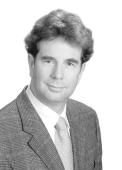
Nikolaus Thißen
Contact
Nikolaus Thißen is Professor of Sustainable Systems Process Engineering and Quantitative Methods at Pforzheim University. As a trained mechanical engineer with a degree from the University of Duisburg and a subsequent doctorate from RWTH Aachen University, he has been teaching technical subjects in production, process and environmental engineering as well as sustainable systems process engineering in the new Bachelor’s degree program in Resource Efficiency Management and in the likewise new Master’s program in Life Cycle and Sustainability since 2012. Furthermore, he teaches basic subjects of quantitative methods in the Business School.
As an engineer, he looks back on almost thirty years of professional experience with leading positions in research and development, plant engineering and technical consulting in the fields of environmental technology and resource efficiency management in manufacturing companies in medium-sized and large industry. During this time, he worked for well-known companies such as Kraftanlagen AG Heidelberg, CIBA Spezialitätenchemie AG Basel, BASF AG Basel, and Bayer Technology Services GmbH Leverkusen.
Nikolaus Thißen is interested in the sustainable improvement and optimization of plants and processes in the field of industrial production. One focus of his research activities is the avoidance or reduction of operational emissions and the increase of energy efficiency in connection with energy and environmental technology solution concepts. The focus is on the comparatively simple question of the measures required to avoid emissions from an industrial production process as completely as possible, a question that has eluded a systematic and conclusive answer to date. The primary approach in the redesign of industrial production facilities should be integrated measures. However, due to the time pressure during the planning phase, the decision is often made in favor of installing end-of-pipe technologies for emission reduction. The result is an investment in an unproductive technology. Waste of resources and high costs can be the consequences, along with additional secondary emissions. Further challenges are the modification of existing production facilities or processes, the new construction or expansion of production facilities within the plant, and the redefinition of stricter legal limits if the existing emission reduction technology no longer meets the new requirements. Within the scope of innovative research, Nikolaus Thißen has carried out successful projects for sustainable emission reduction in cooperation with companies in the manufacturing sector. The development of innovative solutions, which on the one hand avoid or reduce costly investments in unproductive environmental technology equipment in extreme cases, and on the other hand lead to significant savings in the use of resources, can be of existential importance, depending on their characteristics. In many cases, success lies in the combination of technical and organizational measures.
Emission Reduction , Energy Efficiency , Exhaust Treatment , Mass and Energy Flow Analysis , Process Optimization , System Analysis
Journal article
LAMBRECHT, H., THISSEN, N. Q. Q. (2014). Enhancing sustainable production by the combined use of material flow analysis and mathematical programming. Journal of Cleaner Production, 1-12. doi:10.1016/j.jclepro.2014.07.053.
THISSEN, N., VAN LOOCK, J. (2011). Von der Abluftbehandlung zur Ressourceneffizienz. Chemie Ingenieur Technik, 83. Jg., 1573-1581.
THISSEN, N. (2010). Mass and Energy Flow Analysis Supports Process Improvement. Chemie Ingenieur Technik, 82. Jg., 573-581.
THISSEN, N. (2007). Eco-Engenharia – Uma metodologia desenvolvida para melhoria sustentável de processos na indústria química e farmacêutica. Meio Ambiente Industrial (November/Dezember).
THISSEN, N. (2004). Kostenminimierung in der Umwelttechnik mittels Mass and Energy Flow Analysis (MEFA). Wasser, Luft und Boden: WLB.
THISSEN, N. (1998). Biologische Abluftreinigung. Chemie-Anlagen + Verfahren.
THISSEN, N., HERZOG, H. (1997). Biologische Abluftreinigung am Beispiel der Lackherstellung. Wasser, Luft und Boden: WLB.
THISSEN, N. (1997). Wirtschaftlich und sicher: Biologische Reinigung der Trocknerabluft. JOT: Journal für Oberflachentechnik.
THISSEN, N. (1997). Biologische Abluftreinigung - Betriebserfahrungen mit kombinierten Verfahrenstechniken zur Reinigung von organischen Lösemitteln. Entsorgungspraxis.
THISSEN, N. (1997). Biologische Abluftreinigung. Chemie-Anlagen + Verfahren.
THISSEN, N. (1997). Schadstoffabbau auf hohem Niveau - Biologische Abluftreinigung mit kombinierten Filterstufen. Chemie-Anlagen + Verfahren.
THISSEN, N. (1997). Biologische Abluftreinigung in der GfK-Verarbeitung. eJournal Details.
THISSEN, N. (1995). Biologische Abluftreinigung in Kombination mit anderen Verfahren. Wasser, Luft und Boden: WLB.
THISSEN, N. (1995). Saubere Luft dank Synergie. Umwelt Magazin.
THISSEN, N. (1992). Abluftreinigung mit Rotorsystemen. JOT: Journal für Oberflachentechnik.
Dissertation
THISSEN, N. (1991). Experimentelle Untersuchung zur Vergasung fester Brenn- und Abfallstoffe mit dem Jülicher Vergasungsverfahren. Dissertation RWTH Aachen, 1991. Aachen, Germany.
Chapter in Book
THISSEN, N. (2009). Mehrstufiger Batchprozess in der chemischen Industrie. In Mario Schmidt, Hendrik Lambrecht, Andreas Möller (Eds.), Stoffstrombasierte Optimierung. Verlagshaus Monsenstein und Vannerdat OHG.
THISSEN, N. (1996). Verfahrenskombination mit Biofiltern zur Abluftreinigung (Synergiefilter). In Margesin, Schneider, Schinner (Eds.), Praxis der biotechnologischen Abluftreinigung. Springer Verlag.
Article in Proceedings
THISSEN, N. (2012). Rückwärtsintegration bei der Emissionsminderung – Ein Weg zu Ressourceneffizienz im Umweltschutz?. Beitrag im Tagungsband der VDI-Fachtagung Emissionsminderung 2012, VDI-Berichte 2165, VDI Wissensforum GmbH.
THISSEN, N. (1991). Keramische Werkstoffe beim adsorptiven Stofftausch aus der Gasphase. Beitrag im Tagungsband der ENVICERAM ´91, Zweites internationales Symposium Keramik im Umweltschutz, Saarbrücken, 12./13. März 1991.
Leader of a project funded from public institutions
2015 - 2018
SEROW - Simultane Energie- und Ressourceneffizienzoptimierung von Wärmeübertragungsregeneratoren, BMBF FHProfunt
Germany
Expert Assessement/Evaluation
2015
Analyse eines bestehenden Abgasbehandlungssystems und Expertise zur Funktionsweise und Verbesserung in einem Betrieb zur Herstellung von Nahrungsmitteln.
Germany
2013
Reduktion der Raumablufemissionen eines Wirkstoffbetriebs der pharmazeutischen Industrie
Germany
Program Director
2014 - 2020
Studiengangsleiter BW/Ressourceneffizienz-Management
Hochschule Pforzheim Germany
Other administrative responsibility in academic service
2014 - 2020
Mitglied Qualitätszirkel
Hochschule Pforzheim Germany
